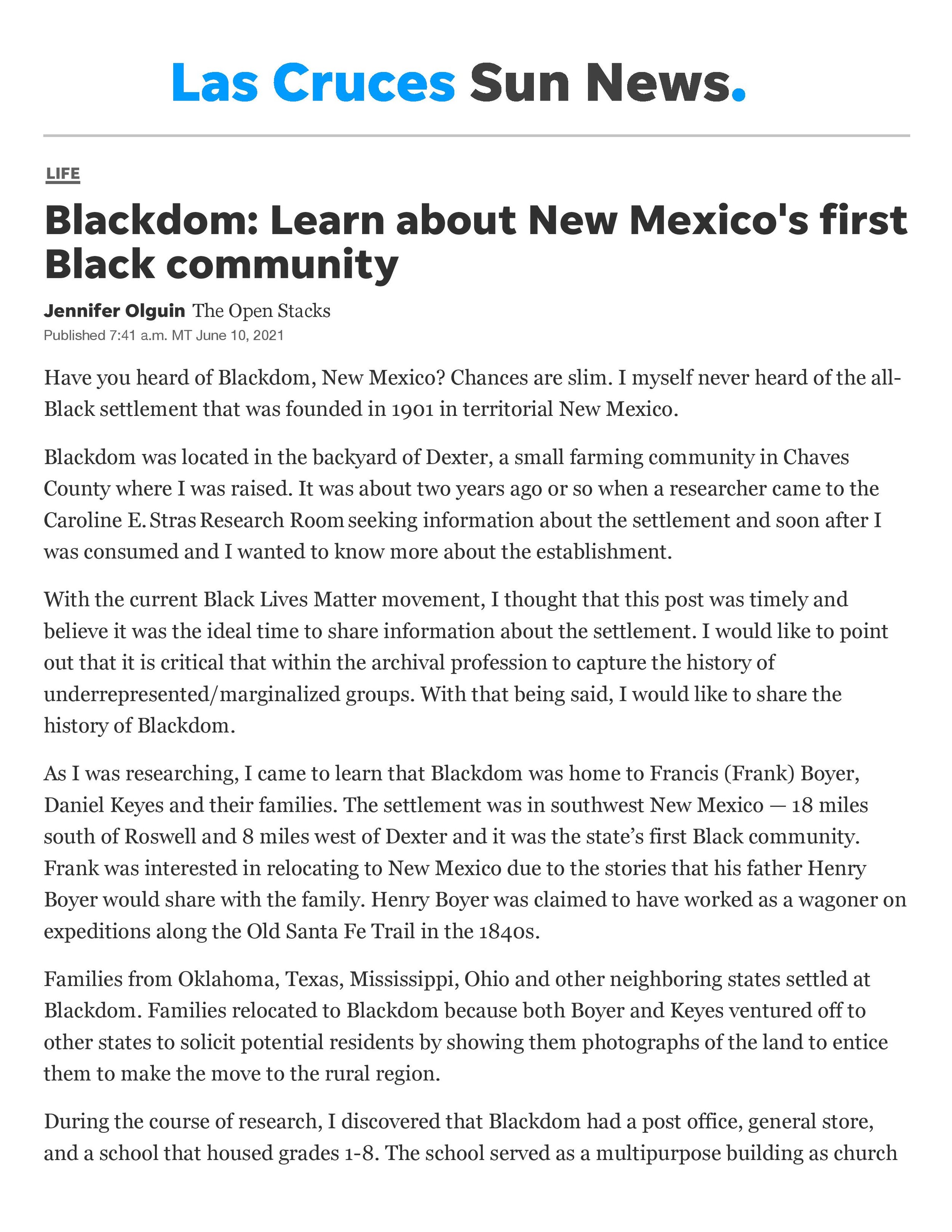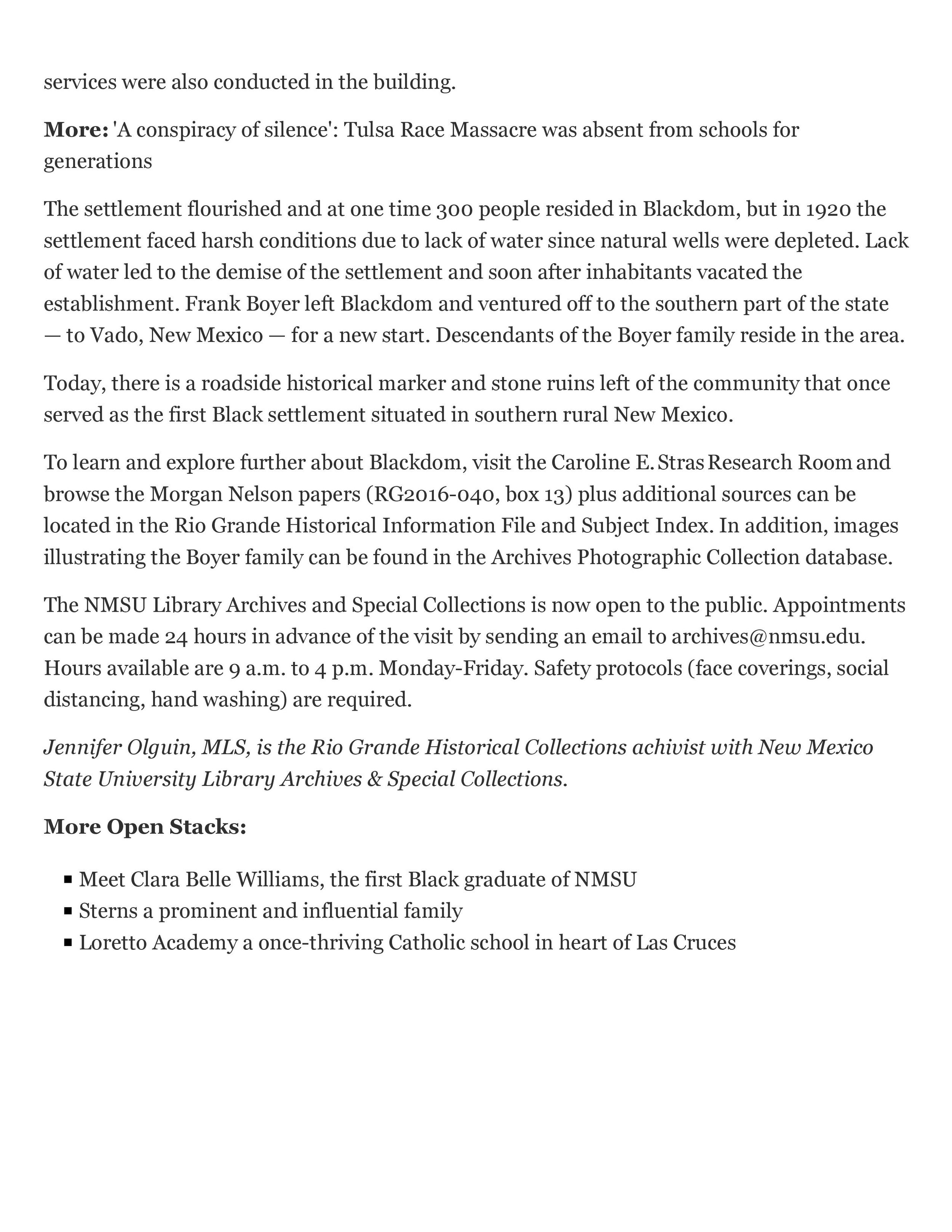Dr. Nelson joins
“Conversations Different” to discuss Blackdom, N.M., a settlement of Black pioneers that formed in southeast New Mexico in the early 1900s. Nelson, whose book “Blackdom, New Mexico: The Significance of the Afro-Frontier, 1900-1930” was published last summer, talks about the historical context in which the settlement existed and dispels the narrative that Blackdom was a failure. He also talks about what it’s been like to write about a history that many people were previously unaware of and what he’s noticed about how people respond when new information conflicts with popular understanding.
Inez Russell Gomez made us all feel like we were “listening to a conversation at her kitchen table”, —Gloria Roybal.
“And her knowledge and somatic understanding of the history came through.” —Marissa Roybal
Santa Fe New Mexican Article: Join the conversation today Aug 23, 2023 Updated Feb 12, 2024










